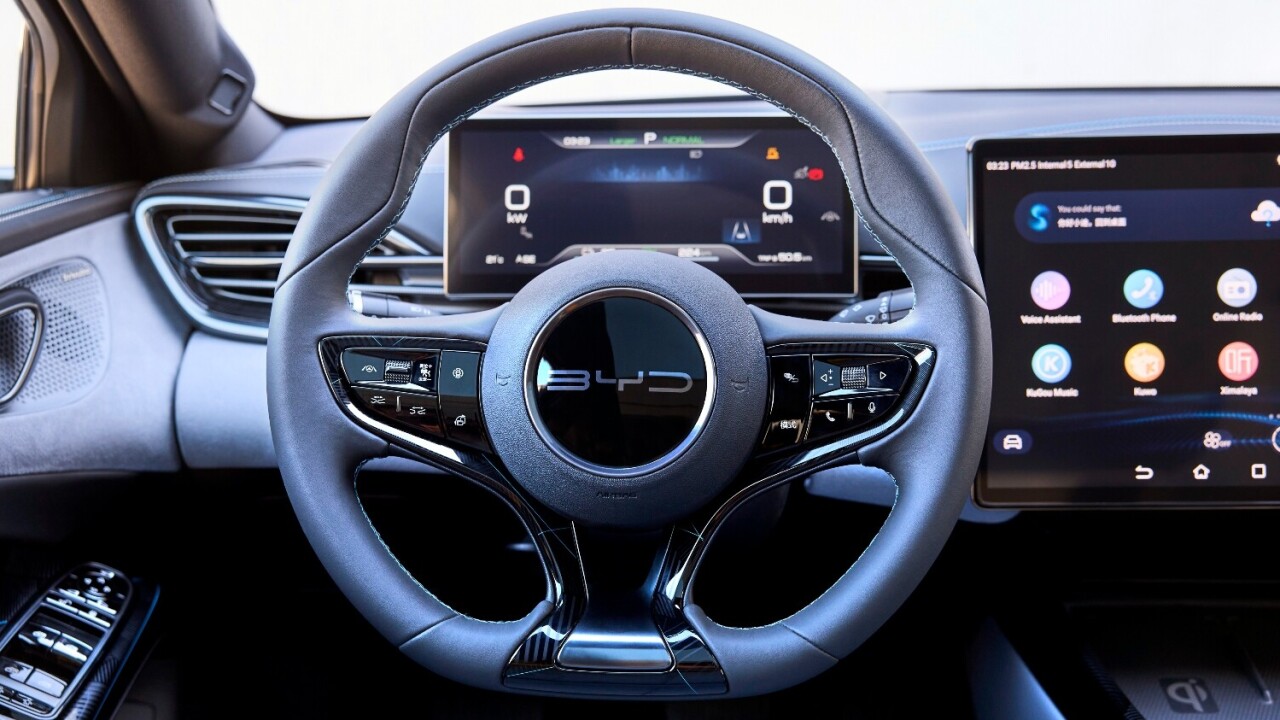
The European Union has hiked tariffs for EVs imported from China, drawing reproach from Beijing and some of its own member states, including Germany, Sweden, and Hungary.
The tough new tariffs range between 17.4% and 38.1%, on top of the existing import duty of 10%. If the EU enforces these provisional measures, Chinese EVs are set to become significantly more expensive in the bloc.
For Brussels, the tariffs are a bid to level the playing field and protect European carmakers from cheap Chinese imports. But some EU member states and automakers fear that the measures could do more harm than good.
Bad for business
“Tariffs are just not the right way to solve this conflict,” Simon Schutz of German auto trade association VDA told CGTN. “It might spark a trade war, and that’s in no one’s interest — in trade wars there are only ever losers.”
The new import taxes will also hit European car brands like VW, BMW, and Dacia. The automakers manufacture a large chunk of their EVs in the world’s second largest economy.
“Any tariffs or policies could risk damaging trade with China which could negatively impact these European manufacturers,” EV expert Dr James Edmondson from market intelligence firm IDTechEx told TNW.
In response to the EU announcement, China’s Ministry of Commerce has urged the bloc to “immediately correct its wrong practices.” The ministry warned that the measures risk hurting both Chinese and European consumers.
The tariffs are the result of a months-long EU investigation into whether Chinese EV prices are artificially low as a result of inflated state subsidies.
While European automakers are fretting about a potential trade war, Hungary is equally worried about how the tariffs will impact its cozy relationship with China.
Hungary could be China’s route into the EU
Hungary has formed a strong alliance with China under the leadership of right-wing Prime Minister Viktor Orban.
In 2023, Hungary alone captured 44% of all Chinese foreign direct investment into Europe. That’s more than France, Germany, and the UK combined.
In response to the tariff hike, Hungary said it disagreed with the “brutal European punishment of Chinese electric car manufacturers with punitive tariffs.”
In December, Tesla rival BYD announced plans to open its first European EV manufacturing plant in Hungary, becoming the first major Chinese automaker with a production base in Europe.
Hungary has also spent more than $1bn of its own money to support new EV battery plants built by Chinese firms like CATL and Huayou Cobalt.
“Similar to some other countries and OEMs, Hungary wants to focus on cooperation and free competition as this will be more effective in transitioning to EVs faster,” said Edmondson from IDTechEx.
And yet, the tariffs could actually be good news for Hungary. Cars built in BYD’s factory there won’t face tariffs at all, because they’ll be made within EU borders.
Hungary’s willingness to work with China could make it the go-to location for EV production in Europe. It could also earn it some pretty big enemies closer to home.
What now?
Under the EU’s proposal, BYD will see the lowest tariff rate of 17.4%. This is because the company provided evidence to the Commission that it had benefited from less state support.
Elon Musk’s Tesla will face a 21% duty for its China-made models, but has applied for a reduced rate, while other carmakers have yet to do so.
The tariffs are set to come into force on July 4, should “discussions with Chinese authorities not lead to an effective solution,” the Commission said.
If talks between the EU and China prove fruitless, prices of China-made EVs will go up in Europe. Especially for BYD, which has become a world leader in cheap EVs, that might not actually prove as disastrous as it sounds.
According to analysts at Citi, BYD’s European operations even with the new tariffs could still prove more profitable than its domestic business.
The real losers could be European automakers and the EU’s green ambitions.
“The long term impact of restricting trade with China more generally could be detrimental to EU manufacturers and adoption of EVs especially when the EU is still so reliant on China for components like EV batteries,” said Edmondson.
The EU’s decision follows in the footsteps of the US government, which announced in May that it would hike import duties on China-made EVs by more than 100%.
Get the TNW newsletter
Get the most important tech news in your inbox each week.




